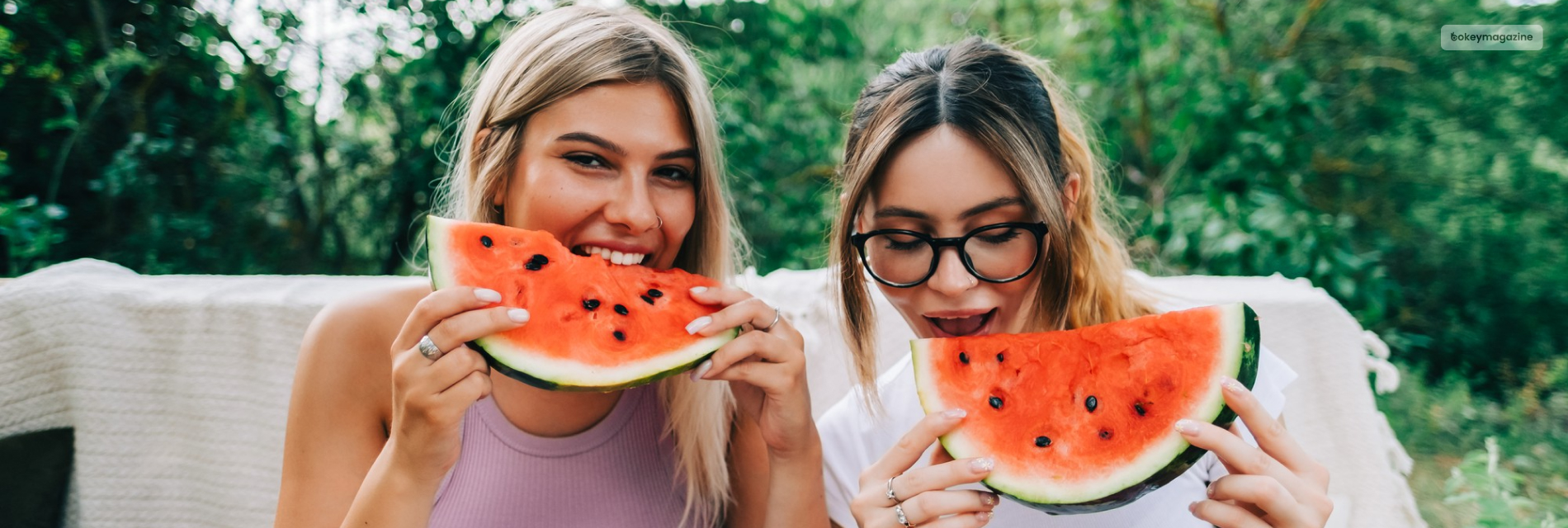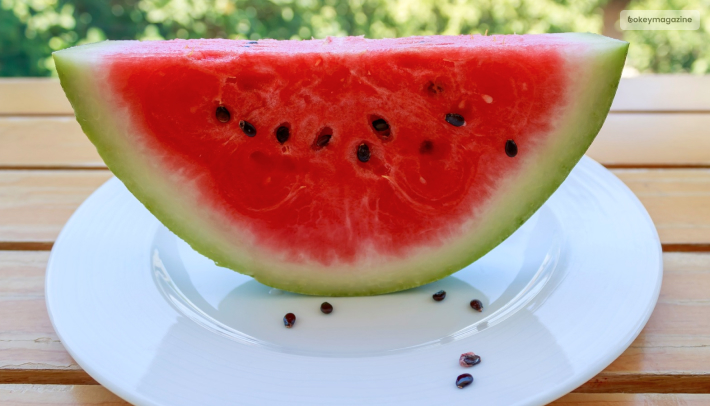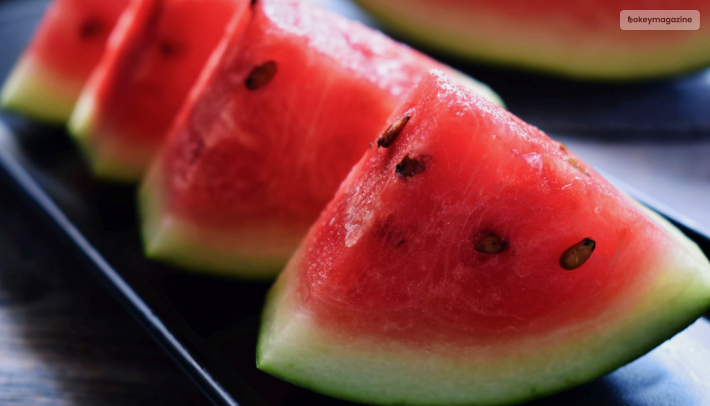
Is It Okay To Eat Watermelon Seeds? Why You Should Start Eating?
Can you name the first thing that comes to your mind when you hear the word summer?
Is it the summer carnivals? Beach parties? Popsicles?
Well, for me, it is different and way less fancy.
The one thing that comes to my mind when I hear about summer is watermelons.
Well, you heard it right. My only connection with summer is a good ol’ watermelon. It can never go wrong. You can make shakes and smoothies out of a watermelon, but nothing tops the satisfaction you get from biting on a big piece of watermelon on a summer afternoon.
Now imagine biting into the perfect piece, and Alas! It’s a seed!
No one really likes biting on those crusty little seeds. But have you wondered why not?
There is practically no explanation as to why you shouldn’t be having watermelon seeds except for the fact that they do not have any strong flavor and are pretty hard to chew on.
I know I have confused you, disgusted even, but trust me on this one. I am not bluffing. If you really want to know how beneficial watermelon seeds are for you and how you can use them, keep scrolling down the article as I will be answering the question, “Is it okay to eat watermelon seeds?”
Types Of Seeds In A Watermelon

Before deciding if you should throw away the watermelon seeds or turn them into a snack, you must know the types of seeds that you would probably find in a watermelon.
As you might have seen while eating watermelon, there are mainly two seeds found in the fruit- black seeds and white seeds.
The black seeds in the watermelon are more like the matured seeds that can be planted to grow a watermelon plant; however, the white seeds cannot sprout a new plant as they are still immature.
You may not realize it, but you may have eaten the white seeds several times as they are soft, chewy, and pretty easy to swallow.
So when you buy a watermelon that does not have any black seeds in it, it is not actually “seedless.” There are several white seeds in it and therefore is totally safe to eat as it will be a big trouble trying to remove every single white seed.
Can You Eat The Black Seeds In Watermelon?

While eating watermelon, we tend to throw away the black seeds, but there is no justification behind this. There is no reason for you to remove the black seeds.
We just don’t prefer eating the black seeds because they do not have any inherent flavor and are harder to chew.
The soft white seeds, on the other hand, are soft and potentially easier to eat compared to the hard black seeds. However, both types of seeds are safe to eat; it depends on the inconvenience of individuals as they feel the black seeds make the flesh of the watermelon more inconvenient.”
Watermelon Seeds Benefits

For a long time, we debated questions like “can you eat watermelon seeds?” or “is it bad to eat watermelon seeds?” So now just let us jump into the benefits that you can get from eating watermelon seeds.
With its high water content, watermelons make for a healthy snack. While being dense in nutrition, they are also naturally low in calories.
You will be surprised to know that 1/8th cup of watermelon contains 4 grams of protein and just 75 calories. An egg has almost 6 to 7 grams of protein.
Watermelon seeds are equally high in hearty fats. A 1/8th of it contains about 1 gm of monounsaturated fatty acids and about 4 gm of polyunsaturated fatty acids.
It is recommended by American Heart Association to eat a modest amount of these unsaturated fats each day.
They lower the levels of bad cholesterol and triglycerides in your blood. Our bodies are incapable of producing these fats by themselves; therefore, we need external sources in our diet that will suffice the required amounts in our bodies.
Also, 1⁄8 cup of watermelon seeds contains 70 mg of Magnesium which is an essential mineral for muscle and nerve functions. Magnesium helps to regulate blood pressure and control sugar levels in our blood.
Last but not least, watermelon seeds are an effective source of iron. ⅛ cup of it contains 1 mg of iron, which is an essential component in hemoglobin. Meat and seafood are the highest in iron; therefore, watermelon seeds are a good source of protein for vegetarians and vegans.
Now that we have talked a lot about “is it okay to eat watermelon seeds?” let us now see if there are any drawbacks to eating watermelon seeds. This depends on the size of the seed.
If the size of the seeds is considerably big, it may cause a choking hazard. Especially for small kids; you make sure you are cautious while eating it.
Eating unhealthy amounts of watermelon seeds may cause constipation, which is a common side effect of iron. So, if you are planning on munching on watermelon seeds, start with small portions. See how your body reacts to it, and only then proceed with more.
How To Eat Watermelon Seeds?

Now that “Is it okay to eat watermelon seeds?” is answered, let’s see how you would want to eat watermelon seeds.
One of the most popular methods of enjoying watermelon seeds is either by drying or roasting them. Dried seeds add a crunchy edge to salads or yogurt parfaits. They are also low in calories compared to your common crunchy croutons or granola.
Roasting watermelon seeds follows the same procedure as roasting sunflower seeds. Heat the oven to 325 degrees and roast the seeds for about 15 minutes.
If you are looking for a savory treat, just toss them into a little olive oil and salt.
And for the sweet tooth’s, you can sprinkle a dash of cinnamon sugar.
Wrapping Up
Just know that developing a new flavor can be challenging and takes time.
I hope to have successfully answered the question, “Is it okay to eat watermelon seeds?”
Hopefully, your confusion is a little sorted. Even then, if you still face any confusion, feel free to drop in a comment regarding the same. I will get back to you as soon as possible.
Read Also:



















Post Your Comment